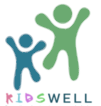
Motivation/Idea:
ADHD (Attention Deficit Hyperactivity Disorder) is one of the most common
behavioral disorders in childhood. Systematic research presented that the
prevalence of ADHD in children is approximately around 2%-7%, with the
average reaching 5% globally. However, this prevalent disorder has been
depicted to present high concurrent comorbidity with other disorders including
specific learning disorders (e.g., reading disability). A diagnosis of ADHD is
associated with low academic attainment, premature cessation of education,
antisocial behaviour and substance misuse in adolescence (Loe & Feldman,
2007). Hence, it is vital to offer these children the adequate knowledge and
competences that will support their mental health, education and ensure a
high quality of life. It is undeniable that the Covid-19 pandemic has exerted a
negative impact on children’s mental health and their learning abilities,
specifically for children diagnosed with ADHD. The European Council
Recommendation of May 2018, analyzed the key competences that are
required on lifelong learning and elaborated on the significance of cultivating
the personal, social and learning to learn competences for children. They are
vital for children with ADHD, as they encompass the ability to reflect upon
oneself, effectively manage time and information, collaborate with others in a
constructive way, remain resilient and manage one’s own learning and career.
Improving these 3 categorical competences can act as a catalyst in the future
of children with ADHD, since they face challenges with communication, interaction and stressful situations.
The KIDSWELL proposal uses the integration of technological learning
approaches (VR) for children with ADHD, to ensure the acquisition of the key
competences related to personal, social and learning to learn skills. Evidence
suggests that educators require support, not only for children with SEN, but
also with the use of emerging technologies. The European Framework for the
Digital Competence of Educators (DigCompEdu) emphasizes that key
competencies for educators include digital skills and gaining access to digital
resources, which are also depicted in the newly Digital Educational Plan by
the EC 2021-2027. Children with disabilities are viewed as needing special placement and pedagogy, which runs counter to the philosophy of inclusive
education. This is especially true for children who have been diagnosed with
ADHD, which has become increasingly common. Moreover, the European
Disability Strategy 2021-2030 emphasizes the digital transformation and the
need to identify the digital skills required for applying assistive technology in
special needs education. Therefore, the need to educate and improve the
digital competences of educators is unavoidably increasing, as the
incorporation of technological-oriented tools in the field of education, is
surpassing the involvement of traditional methodologies when educating children with ADHD (European Agency, 2022).
Aims:
The KIDSWELL project aims:
• To strengthen the profiles of professionals working with ADHD children in schools through a validated course.
• To upgrade the teaching and learning opportunities provided for ADHD children to help them develop the necessary personal, social and learning to learn competences.
• To introduce emerging technologies in schools through the development of a VR Game, MOBILE APP and guided individualized plans for parents
Objectives/Vision:
The KIDSWELL project envisions to support children with ADHD, ensure their
integration into their school and larger community, by advancing their
personal, social and learning to learn competences, through adequate training
to them, but also to their parents and school teachers. The project aims to:
• Support teachers, school leaders and other teaching professions that work
with ADHD children in mainstream and specialized schools by strengthening their profiles, through a validated course.
• Upgrade the teaching and learning opportunities provided for ADHD children
in order to meet their personal, social and learning to learn competences, skills, attitudes and knowledge.
• Empower ADHD primary school children to improve personal, social, and
learning to learn competencies, build resilience against difficulties such as
anxiety, depression, stress, and aggression, and promote diversity and inclusion in education.
• Encourage collaboration and synergies between teachers, parents, and ADHD children to create an inclusive learning environment.
• Promote digital transformation in schools with a custom VR game, an ADHD Audit Tool for symptom assessment, and individualized plans for parents.
• Support parents, as close collaborators of schools and contributors towards the learning process of their ADHD children.
• Develop holistic approaches to promote human rights, acceptance, respect,
and equality among all children, while preventing negative issues like bullying, isolation, marginalization, and early school failure.
